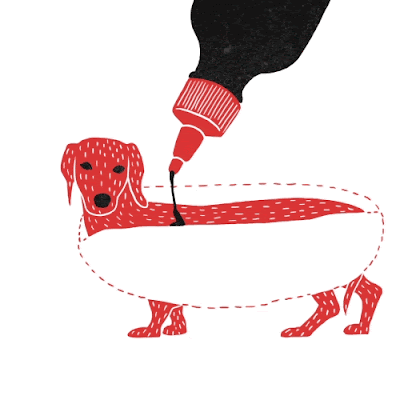New from NPR! 豌豆高粱當雞蛋,Chickenless egg 環保美食連比爾蓋茲都說讚!
下載聲音檔請點我
下載解析版請點我
對於素食者而言,無蛋蛋糕真的是美夢成真的事情。NPR這篇報導,揭露了無蛋科技的分子料理,未來除了能解決雞蛋的大量需求之外,在生產過程也能更環保。怎麼說?家禽的養殖污染環境已經是不爭的事實,若能透過豌豆高粱這類的植物來研發雞蛋替代品,不但能減少對環境的污染,也能讓人享受美食,製造雙贏。現階段已經成功透過科技解決烘焙的需求,不過想要吃炒蛋,還需要等一等。
素食分成很多種,如果你是vegan就表示你連奶蛋類都不碰。我自己已經曾經是vegan,後來發現真的比較麻煩,所以現在奶蛋我也吃,只是攝取量很少。奶蛋素的英文是Lacto-ovo vegetarian (lacto就是奶 ovo是蛋),這項產品若是成功量產推廣,對很多純素食者,應是一大福音。
我以前吃過素食的蛋黃酥,聰明的業者用紅蘿蔔來替代蛋黃,坦白說我根本吃不出差別來。科技用在愛護地球,這樣的商人賺錢也不會感到內疚。這篇文章有很多好句子跟單字,祝大家閱讀愉快!
看比爾蓋茲嘗無蛋餅乾蛋糕津津有味的樣子,不難想像他為何決定投資這家公司。
Why Bill Gates Is Investing In Chicken-Less Eggs
And I'm Audie Cornish. If you think that
you need to crack open打破 a few
eggs to make an omelet, well, there are some young entrepreneurs企業家 in San
Francisco who are betting that won't be true much longer. A new business backed by 支持venture capital dollars風險資本金額(只有人拿錢投資) is taking aim
at瞄準 the traditional egg industry with egg replacement products.
BLOCK: The strategy策略 is to take the
chicken completely out of the process and instead use plants to recreate the
taste and feel of eggs. NPR's Allison Aubrey is here to tell and show us more.
Allison.
ALLISON AUBREY,
BYLINE: Hi there. So are you guys up for a taste test?
CORNISH: Let's do
this.
BLOCK: Okay.
AUBREY: All right.
Well, what I have here are two types of cookies, both are chocolate chip巧克力碎片. One is your
typical grocery store brand made traditionally with real eggs and the other
cookie contains an egg substitute雞蛋取代品 called Beyond
Eggs. It's actually made from
peas and sorghum高粱. And the
question is, can you taste the difference?
CORNISH: All right.
So we're going to taste these and we're going to report back on回報 that question.
AUBREY: Okay. Well,
while you guys deliberate考慮 here and taste, let me introduce you to the 33-year-old
entrepreneur behind this. His name is Josh Tetrick and several years ago when
he was trying to figure out what to do with his life, he had competing ideas有很多點子相互競爭. On one hand, he had sort of do-gooder instincts不切實際的社會改良者直覺(一心求奉獻與利他), but he also had the desire to be a business man, to make
money.
So when I caught up
with him at his company headquarters in San Francisco, I asked him how these
two goals lead him to eggs.
JOSH TETRICK: So the egg industry蛋業 is massive, over $9
billion around the world. And what people don't understand, I think, is as
population explodes爆炸/激增 around the world,
if we continue to eat the eggs we are, there's an environmental cost傷害環境的代價.
AUBREY: Tetrick
points to issues such as
concentration of manure糞便所集中的量 that can pollute
water and...
TETRICK: Leads to導致 lots of greenhouse gas emissions溫室效應碳排放.
AUBREY: Since it
takes a lot of energy to grow the food to feed the chickens that lay the eggs.
Now, as Tetrick talks, he sounds more like an activist激進主義份子 than a business
man.
TETRICK: And I think
there's a better way to feed the world.
AUBREY: Now much of
what Tetrick envisions is still being developed and to his ear, this is the
sound of innovation創新發明. No,
that's not a jumbo jet大型客機 ready
for takeoff起飛. It's a giant mixer巨型攪拌器. Tetrick is taking
us inside his 2400 square foot food laboratory where a molecular biologist分子生物學家 he's hired named
Joshua Klein (ph) is at the helm主導.
JOSHUA KLEIN: We
were just shaking up some cake batters 蛋糕麵糊with new
cooking sources
AUBREY: You see,
when it comes to reproducing the egg, they're trying to find plants that will
do the job, but there's no slam dunk灌籃(這邊指的是一次到位,馬上得分). The egg has so many functions in food. It can make muffins
rise. It can emulsify乳化, fluff things up使其他的食材變得鬆軟 and help
ingredients食材 bind黏合 together.
So Tetrick's team has had to experiment實驗 a lot.
TETRICK: We really
have to dig deeply into plant-based functionality. So what we do is we bring in
hundreds of different types of plants. We look at them under microscopes. We
throw them in mayonnaise美乃滋 and put
them in cookies. We process加工 them in
different ways.
AUBREY: And over
time, they've settled on a combination of peas and sorghum and a few other
ingredients to make their product. Now, it hasn't been easy. In one of the
early Beyond Egg prototypes原型, Tetrick
says when they figured out which combinations of these plants created the right cookie texture餅的口感, they thought they
had a homerun得分(成功).
TETRICK: It was good
when you first took it out of the oven.
AUBREY: The cookies
looked good, they tasted good, but Tetrick says there was a problem.
TETRICK: Then the
next day, it would harden up and it was drying out really quick and we actually
didn't even know what was drying out.
AUBREY: Tetrick says
through trial and error不斷地嘗試與失敗,試了又試, they found a particular species of sorghum that helped the
cookie stay moist濕軟.
TETRICK: And now
ours lasts even longer, in terms of being moist, than an egg-based以蛋液製作的 cookie would.
AUBREY: Now this egg
of the future has attracted lots of attention from high tech investors高科技投資者, including none
other than Bill Gates比爾蓋茲. But
Tetrick's company, Hampton Creek Foods, is certainly not the only player in
this market.
KANTHA SHELKE: Egg
replacements are not something new.
AUBREY: That's food
scientist Kantha Shelke. She says there have been vegan products無奶無蛋食品, such as eggless mayo無奶蛋美乃滋, for decades. But
she says global demand需求 for plant-based
foods以植物做為基底的食品 is rising
fast.
SHELKE: Today,
having an egg-replacement蛋取代品 or non-egg label無蛋標示 is very
appealing in the food industry.
AUBREY: She points
to issues such as food safety, egg allergies蛋類的果敏 and the cholesterol膽固醇 in eggs.
And Kantha says since big food companies aren't jumping in to innovate, it
creates opportunities for start-ups新創公司 like the
folks behind these cookies. For Tetrick, the next big goal is to figure out how
to replicate複製 the scrambled egg炒蛋, which he says is a
challenge.
TETRICK: An extreme
challenge, no doubt about it.
AUBREY: And it turns
out that they've got a version that will actually fry up in the pan, but
Tetrick says the texture's just a little different. It breaks into little
pieces in your mouth.
BLOCK: That's NPR's
Allison Aubrey reporting on Beyond Eggs. My question, Allison, is if they even
look like eggs when you...
AUBREY: You know,
frying up in the pan, it looks like eggs. I really think it's a texture issue
here and a taste issue. And speaking of that, what do you guys think?
BLOCK: I think I'm
not tasting egg, I'm tasting cookie. I cannot form an opinion.
CORNISH: I think
I'll need two or three more to really adequately
AUBREY: Right. Well,
you know, first of all, they're tasters. I don't think people can detect察覺/發現 big
differences here. But for bakers烘焙師傅, this is
attractive because it's turning out to be cheaper than real eggs and for folks
who care about conservation環保, there's
a cleaner environmental
footprint 較為乾淨的環境(減少碳足跡)here.
BLOCK: That's NPR's
Allison Aubrey. Allison, thanks so much.
AUBREY: Thanks to
both of you.
NPR
transcripts are created on a rush deadline by a contractor for NPR, and
accuracy and availability may vary. This text may not be in its final form and
may be updated or revised in the future. Please be aware that the authoritative
record of NPR's programming is the audio.













Thanks,Chloe! Your class is really interesting! I love this blog.
回覆刪除Hi Sheila,
回覆刪除Please do stop by my blog more often to check out new stuff!
And tell your friends to log on too! Thanks a lot for showing support!
nice
回覆刪除